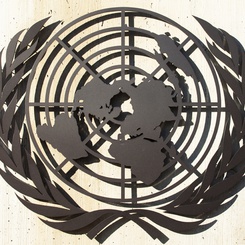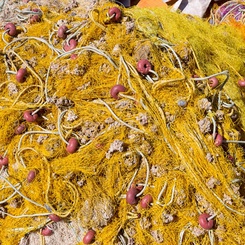Multiple studies have shown that ‘moral obligation’ is an insufficient catalyst for real institutional change. Indeed, decision-makers face multiple internal and external pressures, have different motives behind their behaviors, and can often feel trapped in a vicious cycle maintaining the status quo. Meanwhile, the status quo is destroying our oceans, forests and natural environment – what we call ‘common pool resources’.
With co-author Patricia Gabaldon (IE), our research “A Few Good Companies: Rethinking Firms’ Responsibilities Toward Common Pool Resources” published in the Journal of Business Ethics” proposes a framework to help business leaders, institutions, and policy makers decide on actions that can change the way we use, and contribute to the sustainability of common pool resources.
How did we get caught in this unsustainable vicious cycle?
The need for change is clear: Considering that common pool resources are not infinite, if we continue on our current unsustainable trajectory, depletion of common pool resources threaten the very existence of firms that use them – not to mention the threat that environmental degradation poses to the global population. Firms have a responsibility – both moral and financial – to contribute to sustainability.
However, economic pressure and constraints, global competition, short-term company perspectives, and shareholder expectations constrain the actions of many businesses. Our research describes this ongoing unsustainable behavior in the business world as a ‘social trap’ – a situation in which a group of people act to obtain short-term individual gains, which in the long run lead to a loss for the group as a whole.
What are the ‘ways out’?
Researcher John Platt, who first coined the term ‘social trap’ back in 1973, identifies six ‘ways out’:
- Change the delay to convert long-range consequences into more immediate consequences
- Add counter-reinforcers to encourage rapid changes in behavior
- Change the nature of the long-range consequences
- Add short-term positive reinforcement
- Get outside help in changing the reinforcement patterns locked in loops
- Set up a subordinate authority to prevent entrapment
But if these ‘ways out’ are going to be effective, it’s first important to understand what drives firm decision-making. Indeed, companies can contribute to common pool resources in the same sustainable way, while being driven by vary different reasons.
For this framework, we identify four different types of organization : Free riders act solely in their own self-interest and are driven by short-term profit maximization; Followers are skeptical about the long-term benefits of sustainable behaviors but will make changed to comply with regulation; Believers are willing to cooperate in the hopes that others will return their trust; Altruists who act sustainably and believe truly and intrinsically in the benefits and positive consequences of their actions and behaviors.
In brief, our research combines Platt’s ‘ways out’ with user typology to develop a framework that will help distinguish between companies’ motives and create tailored solutions for companies to contribute to common pool resources in a sustainable way.

Motivating companies to act responsibly towards common pool resources is not an easy task. Companies can be forced to change their actions rapidly, but changing a company’s motives and interests will take time. However, understanding the differences in motives between companies provides the rationale for seeking alternative solutions.
Our paper extends the discussion about alternative solutions and policies to preserve common pool resources for future generations. If offers ‘ways out’ that enrich the context within which one thinks about a firm’s responsibilities towards common pool resources.









